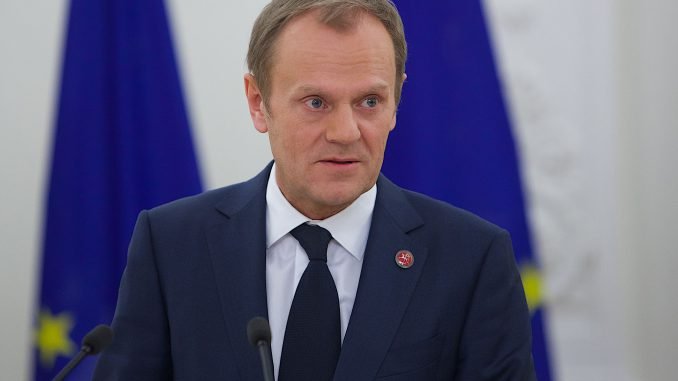
“We will not a find a long-term solution for Ukraine without a firm, consistent and united European strategy towards Russia,” he told journalists after meeting with Lithuanian President Dalia Grybauskaitė.
Tusk did not speak about sanctions specifically, but reminded that EU leaders agreed in December to stick to the existing policy and plan to discuss relations with Moscow again in March when the existing sanctions, imposed a year ago, against a group of people over the annexation of Crimea expire. These people are banned from entering the EU and their assets are frozen.
Separate sanctions imposed against Russia for the intervention into eastern Ukraine will expire in July.
The support of all EU member states is needed to extend the sanctions after their expiration or soften them before the deadline.
During the short statement to the press after which questions were not accepted, Tusk said he understood that Lithuania felt “the consequences of Russia’s policy and actions more than most others”.
“The European Union’s policy towards the East is not a policy against Russia. It is a policy in support of our eastern neighbors to help become modern, prosperous, democratic societies. Today this also means a policy in support of respect for borders and peace in Europe,” Tusk said.
Tusk also said that Europe needed “to do more” in fighting terrorism which reignited concern after the recent Paris attacks. He also called on EU states once again to exchange air passenger data, and added that these issues would be discussed during the upcoming EU summit in March.
Tusk, Poland ‘s former prime minister, was appointed president of the European Council, consisting of the heads of state or government of the member states, last December. He came to Vilnius to attend euro introduction related events.

Be the first to comment